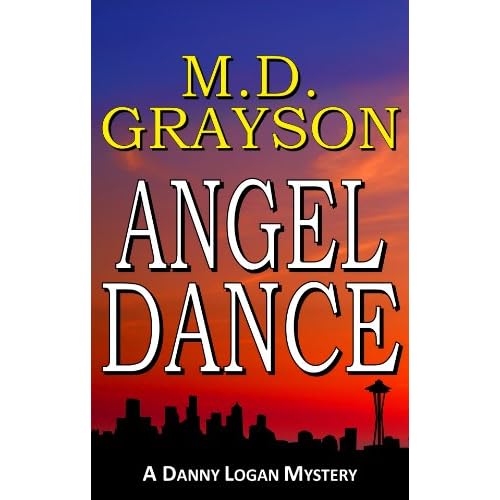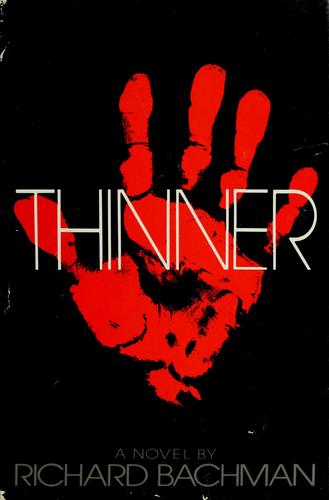What's your idea of perfection? The Stepford Wives explores this topic, and the original novel did so in chilling fashion. Two notable remakes later, some of the original message might be lost, but it's still a pretty scary story.
The Book
Ire Levin wrote The Stepford Wives in 1972, and it became a hit. It's a pretty quick read, and it's written in a wonderful off-the-page style where much of the horror takes place in the reader's imagination. The story begins with photographer Joanna Eberhart, who's a modern woman with a career. She's moving with her family (husband and kids) to Stepford, Connecticut.
She has trouble fitting in right away. The women in Stepford have immaculate homes, but that's because they spend tons of time waxing and dusting and wiping and scrubbing. Yet they do so with a smile, as if keeping a clean house is their greatest joy in the world. To make matters worse, the women in Stepford are knockouts. They're fit, they're groomed, they're styled to the nines. It's like they're perfect or something. All of them. Even when they shop for groceries, which seems to be their main source of socialization, their carts are neatly stacked and picture-perfect.
As far as Joanna is concerned, it's enough already -- and she's only just arrived. Thank goodness she happens to meet fun-loving Bobbie, a lovable slob, and Charmaine, athletic and funny. Charmaine is so in love with tennis she has her very own court. Once Joanna forms a trinity of friendship with these two, it seems like things can work out in Stepford after all.
Then things change. Charmaine begins acting strange. She fires her maid and begins doing all of her own cleaning. Out of nowhere, she has the tennis court bulldozed so her husband can have a putting green instead. It's definitely out of character, and Joanna is concerned.
She begins to concoct some pretty wild theories about the women in Stepford. Are they being poisoned? Is there something in the water? Maybe the town husbands, who meet at the men's club, are brainwashing them all. Joanna starts to research some of these Stepford wives. As it turns out, they're sort of amazing. Many of them were professionals, activists, career gals like herself. When Bobbie suddenly shifts personalities and embraces housework, changing her previous slovenly ways, Joanna starts to become frightened.
She's going to get the hell out of Stepford. When she goes home to collect her kids, they're already gone. Her husband takes her keys away, but she escapes on foot. Unfortunately, the men's club finds her. She accuses them of turning all the women in town into robots, an accusation they deny. Joanna strikes a deal with them: if she sees one of the other women bleed, she'll believe they aren't all robots.
They lead her to Bobbie's house, where loud music is playing. Joanna approaches Bobbie, and Bobbie pulls out a knife....
In the epilogue, Joanna happily shops in the grocery store with a perfectly-organized cart.
The Films
How good is this book? So good that the term "Stepford wife" has become part of pop culture; it refers to a woman who seems to be a perfect housewife, perhaps unnaturally so. The first time, The Stepford Wives was adapted to film in 1975. Katharine Ross stars as Joanna Eberhart, and without a lot of banner stars the movie wasn't a huge success. Through the years, it's established a solid cult following and it's a favorite among scifi horror afficionados.
As in the book, the Eberharts move from New York to Stepford, a perfect little Connecticut suburb. Joanna's husband Walter quickly joins the Stepford Men's Association and makes quick friends, but she has trouble adjusting. Enter Bobbie and Charmaine, destined to be Joanna's best Stepford friends.
When Joanna goes to tell Bobbie about a gallery event featuring her photographs, she's shocked to find her friend behaving strangely. Joanna launches her investigation, and everything Stepford begins to unravel. As she suspected, things aren't as perfect as they seem. In fact, they're downright weird. She goes to a psychiatrist at her husband's insistence, but this doesn't change her mind. Things between Joanna and Walter become violent.
Determined to find out what's wrong with her friend, Joanna attacks Bobbie with a kitchen knife. When Bobbie doesn't bleed or even flinch, real terror sets in. Joanna sneaks into the building where the men's club is housed, searching for her children because they are no longer in her home. There, Joanna confronts her own robot double, not quite completed. The robot sees Joanna and holds up a cord before advancing toward her...
And later, in the supermarket, a very beautiful Joanna is shopping happily.
The 2004 remake of the film, and this time it did have a banner cast, turned the original story on its head. I'm not a fan of remakes, but this one is really good. Nicole Kidman stars as Joanna Eberhart; Matthew Broderick is husband Walter. Sloppy Bobbie is played by Bette Midler. Christopher Walken is the de facto leader of the Men's Association, and his wife (played by Glenn Close) is the nominal leader of the women's events. They get together to discuss catalogs, sewing methods, cleaning tips, and whatnot.
Stepford is shocking to Joanna, who this time is a high-powered television executive. When she becomes fired because a reality contestant she tortured went crazy, Walter decides to make a change and move the family to Stepford. Joanna doesn't find a shred of happiness until she meets Bobbie and Roger. This time, there's no Charmaine. Roger is an openly gay, fashion-obsessed former New Yorker who becomes fast friends with Bobbie and Joanna. All three are relatively new to the town, and all three are in committed relationships with men.
They begin noticing odd things about the town, which is filled with modern electrical conveniences. Joanna and Walter begin to have marital problems, and Joanna vows to make Stepford work for her. In an attempt to learn more about fitting into Stepford, the three friends go to visit one of the town's glamorous, vapid housewives. There, they find a funny device with the wife's name written on it. A scare chases them away from the house before they can find more.
Walter, who's enjoying the men's club, is slowly being introduced to the real truth about Stepford...and he seems to kind of like it. Like, what's better than a robot wife who can also operate like an ATM? In one scene, one of the men's club members uses a remote to bring his wife out, and she dispenses twenty one-dollar bills to him from her mouth.
In a stunning about-face, Roger suddenly drops his flamboyant and fashionable ways and becomes a Republican politician overnight. The next day, the robotic dog who lives with the Eberharts appears beside Joanna's bed holding another of those funny devices. This time, it says "Joanna." After doing some research, she learns that all the women in Stepford were once high-powered execs, like her, and placed in other impressive positions career-wise.
When she goes to see Bobbie, she finds that Bobbie's house is immaculate. When Bobbie doesn't react to being caught on fire, Joanna flees. She goes to the men's club to find her children, but finds only the town's men instead. They explain what it's like to be second fiddle to their wives -- the guys who hold the purse while they win awards, pose for pictures, or whatever. A new Joanna robot is revealed, and Walter confronts his wife. Just before he takes her into a private room, Joanna makes a final plea for some reason from the men.
And later, she's shopping in the grocery store. She looks perfect.
What Got Adapted?
The 2004 movie, unlike the movie that came before and the book itself, takes things even further. Now-perfect Joanna and Walter attend a formal ball with the other Stepford couples. Joanna dances with Mike (Christopher Walken), and the two go out to the gardens together. Walter is in the control room of the men's club, and he destroys the Stepforward software program that controls the Stepford wives.
They begin to wake up, and realize what's been done to them. It's a fantastic about-face and a great twist to the original story. But the movie throws in yet another twist, which I won't reveal, and ends in a very fun way. This version of the story is also very humorous, and there's a lot of great dialogue added to the script. It's definitely worth a watch, even if you haven't seen the original or read the book. But read the book! It's quietly terrifying, and very enjoyable.

























